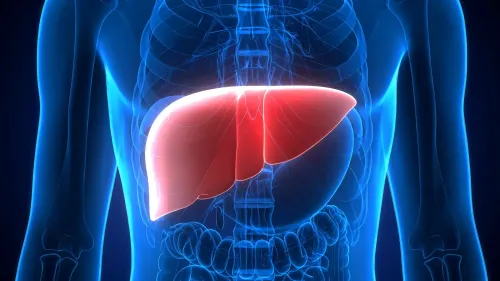Can Diabetes Drug Effectively Treat Fatty Liver?

Synopsis
Key Takeaways
- Semaglutide can halt and potentially reverse liver disease.
- It is effective for patients with metabolic dysfunction.
- The study shows a significant improvement in liver health among participants.
- Weight loss and better liver function were observed in those treated with semaglutide.
- Some gastrointestinal side effects were reported.
New Delhi, May 1 (NationPress) A recent study indicates that administering semaglutide, an anti-diabetic drug, may not only halt but also reverse liver disease. Researchers from King's College London, UK, explored semaglutide's potential due to its effectiveness in reducing fat and liver scarring for individuals suffering from metabolic dysfunction-associated steatohepatitis (MASH)—a critical liver condition.
MASH represents a more severe variation of Metabolic dysfunction-associated steatotic liver disease (MASLD), previously recognized as non-alcoholic fatty liver disease (NAFLD), a chronic liver ailment stemming from excessive fat accumulation in the liver.
This condition is closely related to obesity and other health issues like type 2 diabetes and cardiovascular diseases.
In this international trial, conducted across 37 countries, 800 participants were randomly assigned to receive a weekly injection of 2.4 milligrams of semaglutide or a placebo, supplemented with lifestyle counseling.
Results published in the New England Journal of Medicine revealed that after 72 weeks, 62.9% of those on semaglutide showed a reduction in steatohepatitis (liver inflammation with fat buildup) compared to 34.3% in the placebo group.
Additionally, roughly 37% of the semaglutide recipients experienced improvements in liver fibrosis, compared to 22.4% in the placebo cohort.
“MASH is an escalating global issue, and this trial offers genuine hope for those affected. While caution is warranted, our findings suggest that semaglutide could serve as a valuable treatment for this advanced liver disorder,” mentioned Prof. Philip Newsome from King's College.
Furthermore, participants receiving semaglutide demonstrated enhancements in liver enzymes and other blood indicators of liver fibrosis, alongside an average weight loss of 10.5%.
Nevertheless, gastrointestinal side effects were more prevalent among those taking semaglutide, including nausea, diarrhea, constipation, and vomiting, as reported by the research team.









